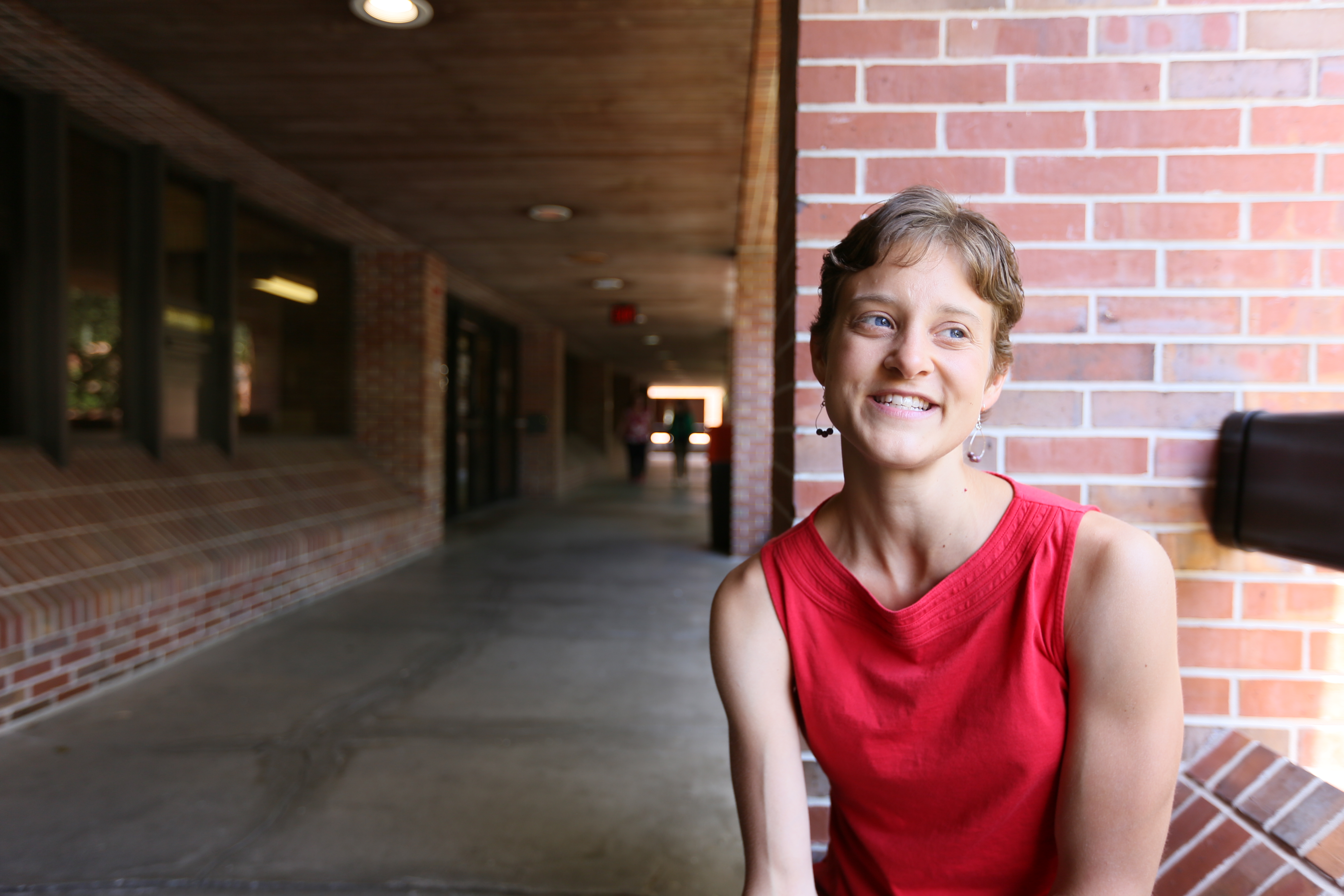Highlighted Doctoral Fellow – Lindsay Vecchio
Experience of a current student
Just back from a conference in Illinois, where she spoke about the social theory of reflexivity in education, Lindsay Vecchio sat down for an interview to share a bit about her experience as a student at the University of Florida.
Vecchio, a Ph.D. student in the School of Teaching and Learning specializing in ESOL/Bilingual Education, has a diverse Curriculum Vitae and was nominated as a finalist in the university’s three-minute thesis competition for presenting her thesis topic “Haitian-American Generation 1.5 Students’ Writing Experiences.”
Before coming to UF, Vecchio was a lecturer at the Université de Picardie Jules Verne in Beauvais, France. She completed her Bachelor’s and Master’s degrees in Michigan and has an interest for ELI students in mainstream classrooms, especially Haitian language learners.
Q&A: Lindsay Vecchio

You’re a Midwesterner who has traveled and taught abroad. How did you settle on the University of Florida to continue your education?
What bought me to the University of Florida was Dr. Candace Harper’s research on mainstream classroom teachers working with English language learners, which was exactly what I was interesting in studying. Also, I was attracted to learning in the state of Florida because of the large immigrant population, which could lead to many research opportunities.
What has inspired you to pursue language studies, and eventually teaching?
I’ve always had an interest in learning foreign language. I’ve studied abroad several times and was a French major in college. To me, teaching language is the other side of the coin. After I graduated with my Bachelor’s in French, I got a job teaching English in France. From that experience I realized that I not only loved to learn language, but I love to teach it too.
How do you intend to use a degree here to further your education and your career?
I’m going to use what I learn here to be a better language teacher. Both my in- and out-of-class experience have given me insight into how important context is for learning.
That field experience includes volunteering in an ESOL class at Gainesville High School. How do these local experiences compare to what you’ve learned teaching abroad?
I like that I get to see the children develop over time. Children abroad are comfortable in their own land while learning a foreign language, but children in this country are usually here for good. They have to adapt to the culture as well the language.
Have you had any unique teaching or learning experiences here?
When I first started volunteering at GHS, there was an ESOL student in the 8th grade who hadn’t learned to read or write at all. A few years later he was able to do both. I enjoyed watching him develop and felt proud of his accomplishments.
What has been the most helpful to you during your time at UF so far?
The most helpful experiences have been the opportunities I’ve had outside of the classroom, which includes volunteering at GHS, being a teaching assistant, and attending local and national conferences.
 Have you had any shifts in perception about teaching?
Have you had any shifts in perception about teaching?
Before I was more focused on teaching. Now I focus on how the context – the student’s background, culture, etc. – plays into everything else in education.
What kind of financial assistance do you receive?
The awesome thing about a fellowship is that you have a set amount of money coming in every year. It made me sure that I would be here for four years focusing on my degree while knowing that I’d have work as a teaching assistant.
Have you received any career counseling during your fellowship?
The professors I’ve worked with have strongly encouraged me to diversify my portfolio of work. To do this they recommended speaking at a variety of conferences in places outside Florida.
What are your plans for after graduation?
I would like to become a university professor or administrator.






